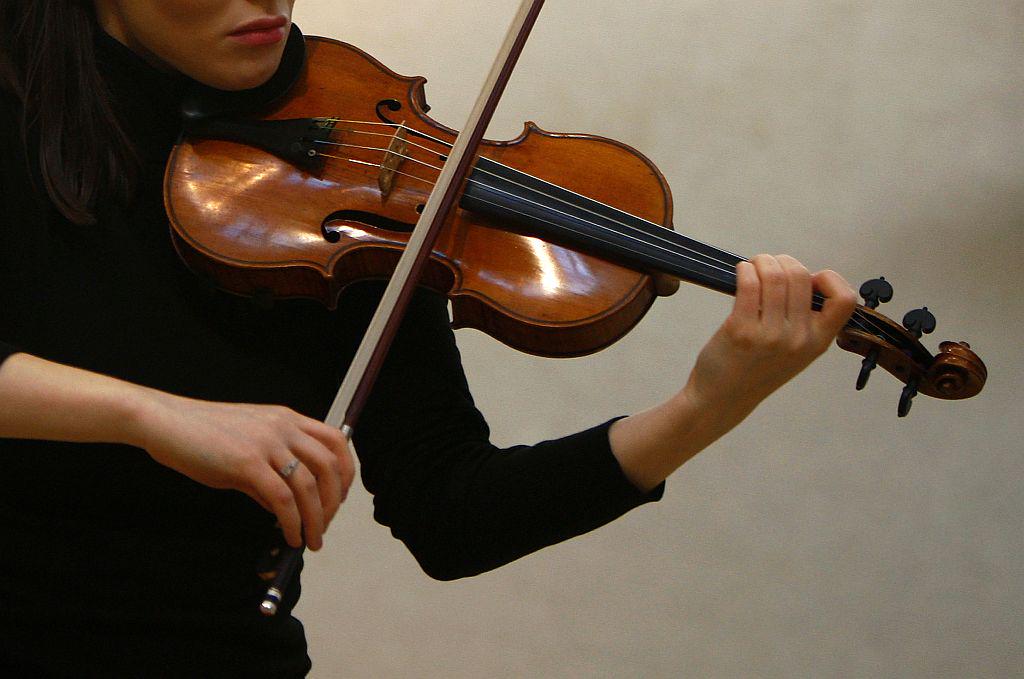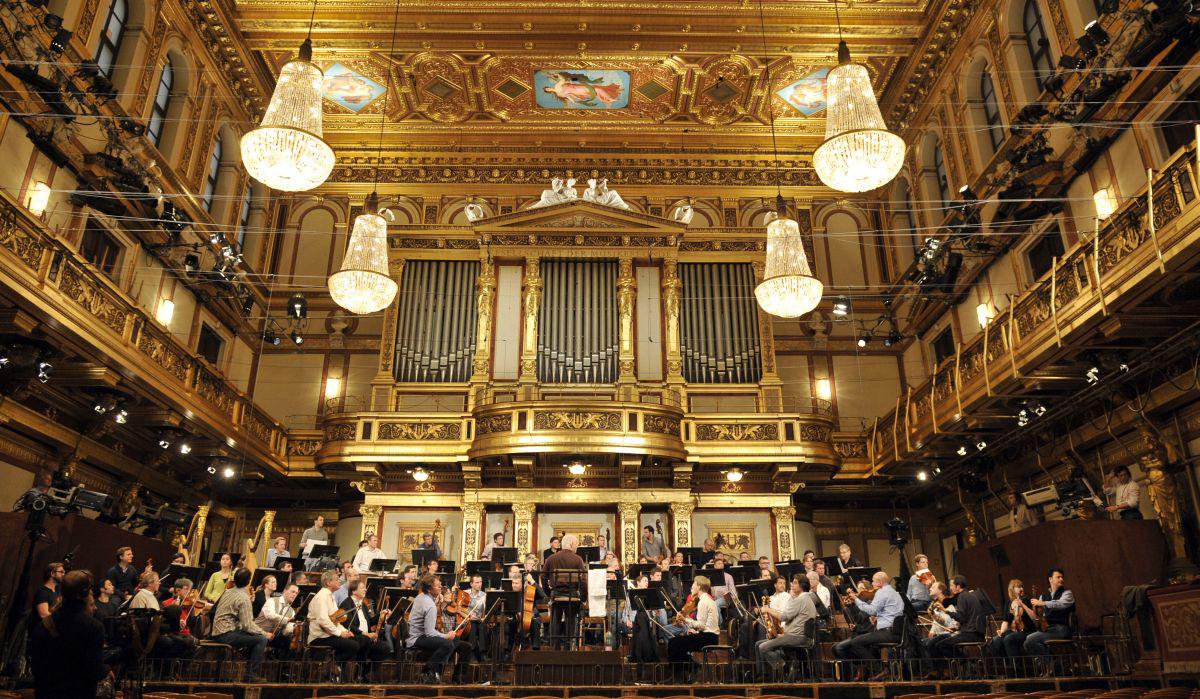
I practised regularly, attended competitions and held my own recitals. I continued my education at Ljubljana Music and Ballet Conservatory, and in 2009, at the University of Music and Performing Arts in Vienna. I’ve wanted to play in the Vienna Philharmonic Orchestra ever since I was a little girl, when I found a CD at home with Beethoven’s Missa solemnis

For every musician, the preparations for the audition start with the first contact with the instrument. This means tackling technical challenges and performance anxiety from public performing at an early age. Direct preparations for the audition started for me in October, and weren’t any different to everyday practice of the instrument. The only difference was that I took more time for the prescribed programme and I studied it in greater detail.
Kovačič first encountered the violin at a very tender age. She was immediately taken by the instrument and started playing it when she was five. "I practised regularly, attended competitions and held my own recitals. I continued my education at Ljubljana Music and Ballet Conservatory, and in 2009, at the University of Music and Performing Arts in Vienna. I’ve wanted to play in the Vienna Philharmonic Orchestra ever since I was a little girl, when I found a CD at home with Beethoven’s Missa solemnis."
Every new year, her family would gather and watch the New Year's Concert of the Vienna Philharmonic on TV. One of her goals was to play in this orchestra and her great wish has now come true. She started her new job this February. We spoke just after she had signed the contract and the excitement was still at its peak. In a good sense.
Kovačič has been living in Vienna for seven years. In addition to her studies, she also attended various master courses, among these were also the courses organised by the Vienna Philharmonic every August in the TrentaValley.
Audition
As one of the most renowned orchestras, auditioning for the Vienna Philharmonic demands a serious approach. "For every musician, the preparations for the audition start with the first contact with the instrument. This means tackling technical challenges and performance anxiety from public performing at an early age. Direct preparations for the audition started for me in October, and weren’t any different to everyday practice of the instrument. The only difference was that I took more time for the prescribed programme and I studied it in greater detail."
The auditions for each orchestral instrument are different. They differ depending upon the prescribed programme and the course of events on the day of the audition, which starts in the morning when the candidates first draw the numbers, which determine their order. The jury composed of colleagues from the orchestra selects the programme for the first round, which is played by all candidates in the determined order. After the end of the first round, the jury sums up points and informs the candidates which of them will perform in the second round and which programme they want to hear. The number of rounds depends on the jury and how long it takes them to arrive at the decision on which of the candidates is the most suitable for the vacant position. This is an exceptionally stressful situation, which is surmountable if the musician is well prepared and confident in their abilities.
The waiting was the most tiring. The candidates performed the first two rounds behind a curtain. When only three candidates remained on the short list, they performed the required pieces of music directly in front of the jury. When the jury told her that she had been selected, she was ecstatic. Nevertheless, Kovačič is not the only Slovenian playing in the Vienna Philharmonic. Since 2011, the double bass player, Iztok Hrastnik, has also been a member of the Philharmonic. He was the first Slovenian in the orchestra after one hundred years.
Inspiration
Only Petra knows best how much hard work was invested in her achievement and how many sacrifices. How little time she had to relax during holidays and vacations if she wanted to make progress in her career. She absolutely enjoys music, but playing is hard work and it is always necessary to set high goals. "My goal has always been to do something which I enjoy most effectively and to find time every day for myself, friends and family, it is from there that I get my energy for work," she says.
Yes, Petra is truly an inspiration for all who venture on the musical path and for those of us who derive great joy and pleasure in music.
Polona Prešeren, Sinfo
I practised regularly, attended competitions and held my own recitals. I continued my education at Ljubljana Music and Ballet Conservatory, and in 2009, at the University of Music and Performing Arts in Vienna. I’ve wanted to play in the Vienna Philharmonic Orchestra ever since I was a little girl, when I found a CD at home with Beethoven’s Missa solemnis
For every musician, the preparations for the audition start with the first contact with the instrument. This means tackling technical challenges and performance anxiety from public performing at an early age. Direct preparations for the audition started for me in October, and weren’t any different to everyday practice of the instrument. The only difference was that I took more time for the prescribed programme and I studied it in greater detail.

































































